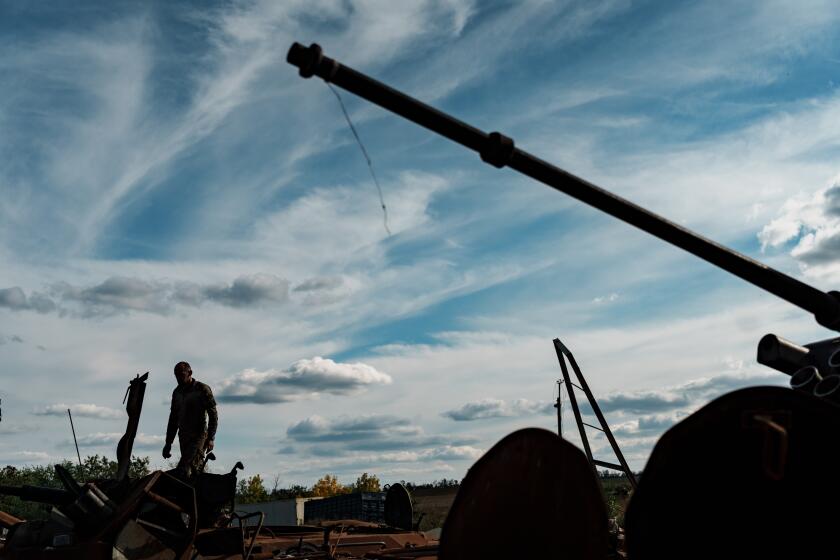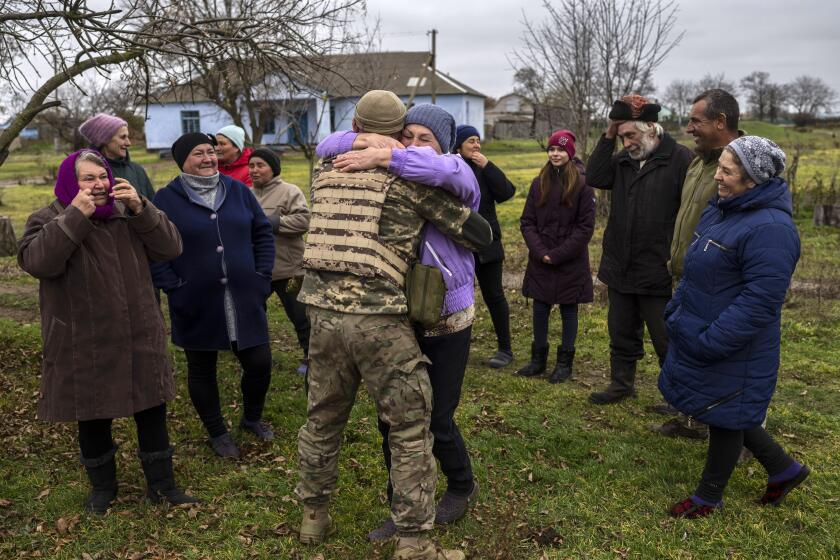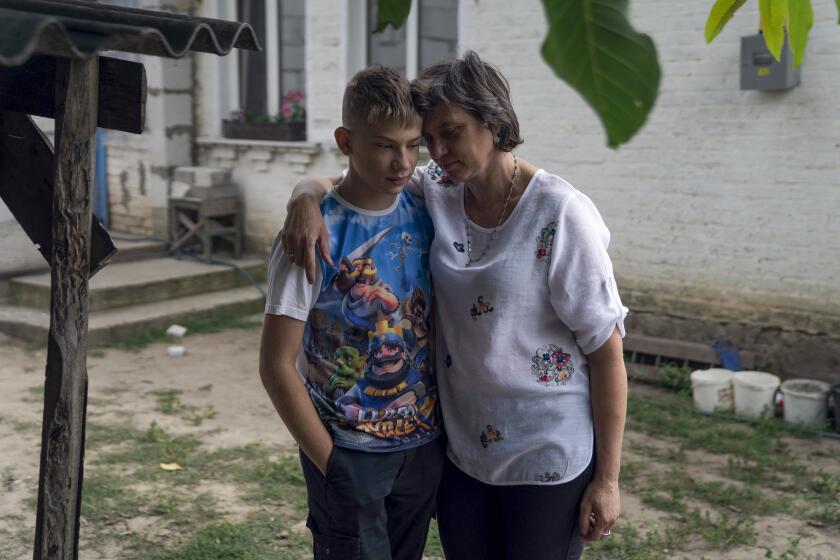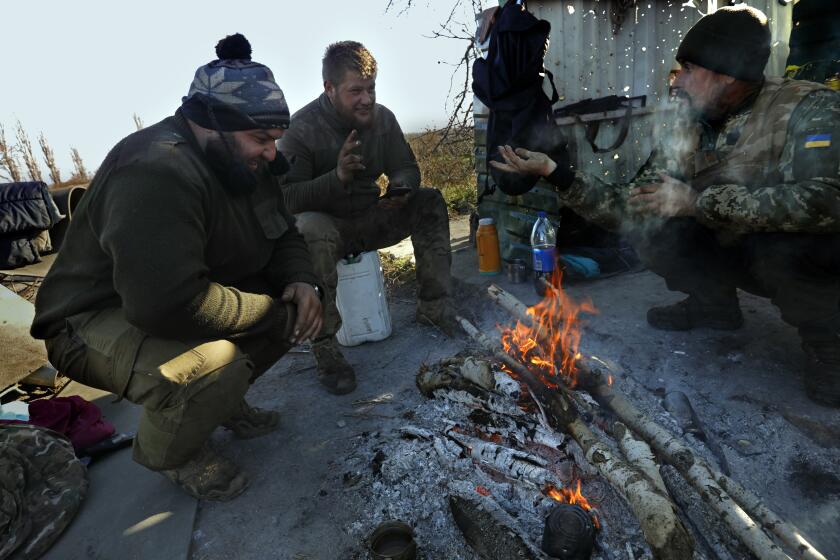‘Save the children at any cost’: How Ukrainians kept orphans from being sent to Russia
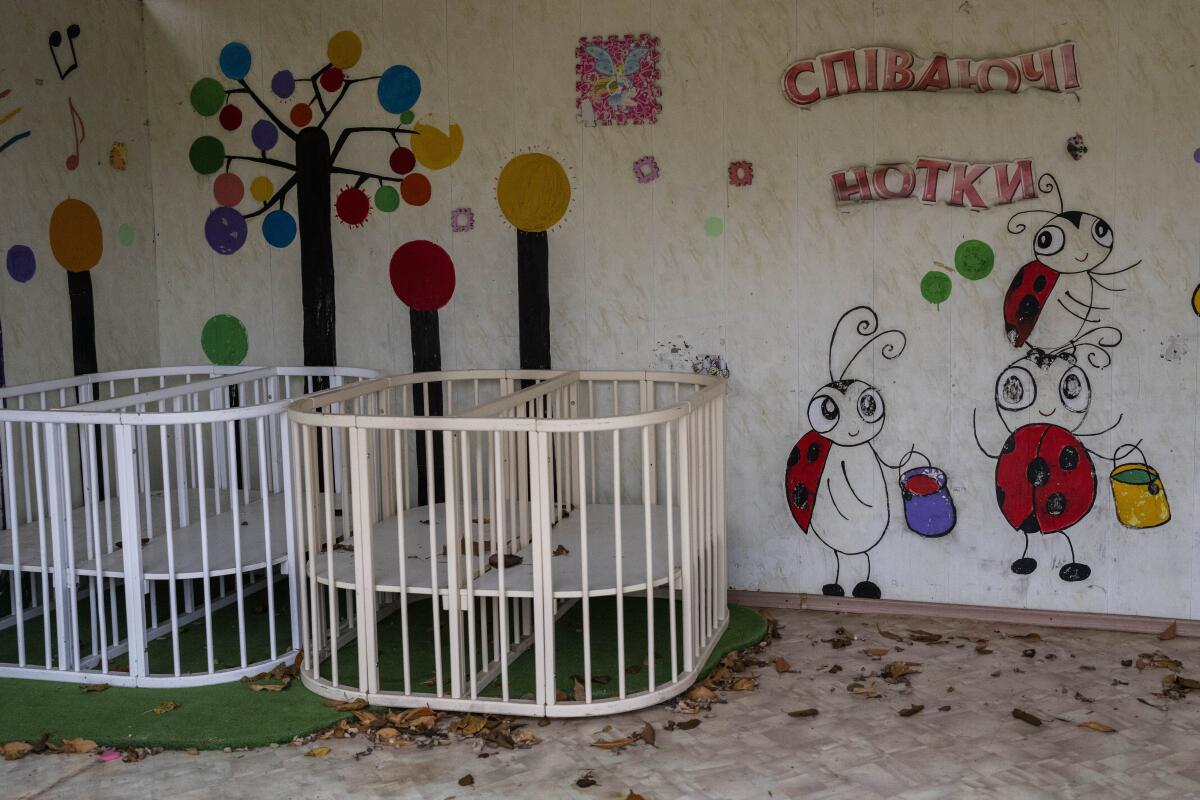
- Share via
KHERSON, Ukraine — Hours after Russia invaded Ukraine in February, staff members at a children’s hospital in the south started secretly planning how to save the babies.
Russians were suspected of seizing orphan children and sending them to Russia. So workers at the children’s regional hospital in Kherson city began fabricating orphans’ medical records to make it appear as though they were too ill to be moved.
“We deliberately wrote false information that the children were sick and could not be transported,” said Dr. Olga Pilyarska, head of intensive care. “We were scared that [the Russians] would find out … [but] we decided that we would save the children at any cost.”
Throughout the war, Moscow has been accused of deporting Ukrainian children to Russia or Russian-held territories to be raised there. At least 1,000 children were seized from schools and orphanages in the Kherson region during Russia’s eight-month occupation of the area, before Ukraine recaptured it in November, local authorities say. The children’s whereabouts are still unknown.
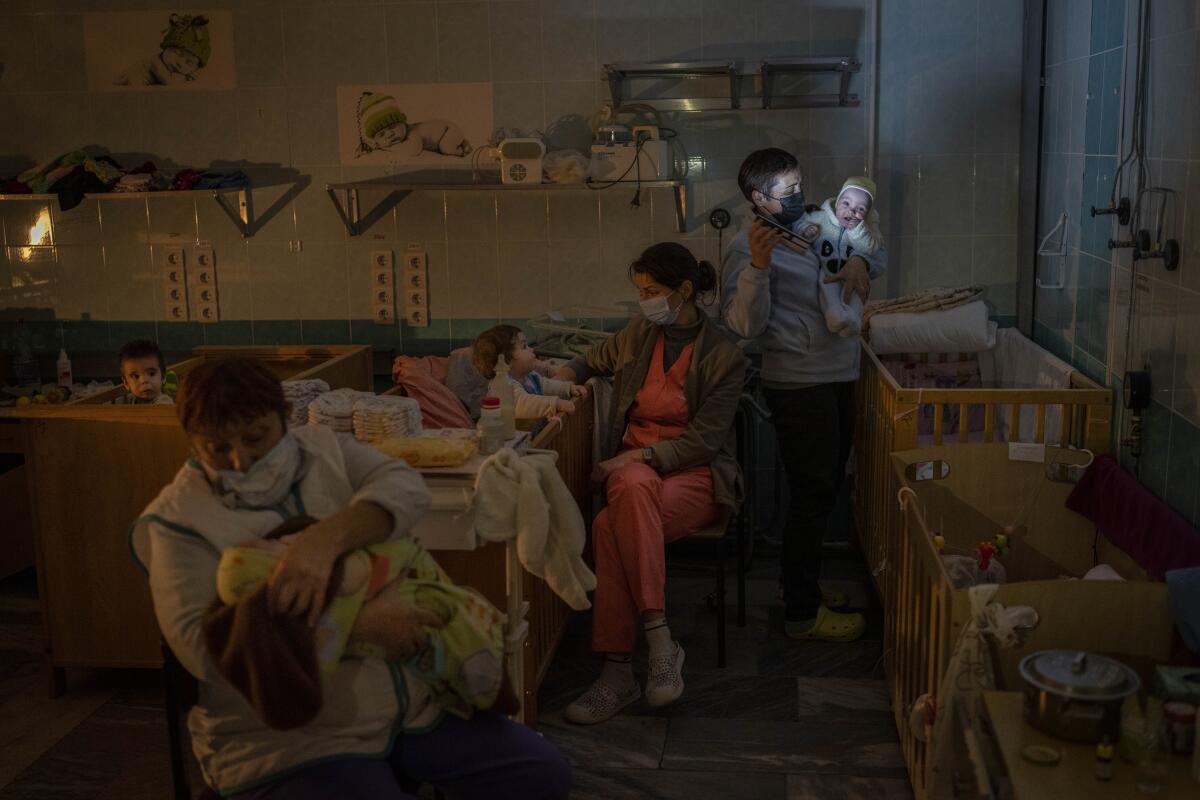
But residents say even more children would have gone missing had it not been for the efforts of some in the community who risked their lives to hide as many children as they could.
At the hospital in Kherson, staff invented diseases for 11 abandoned babies under their care so that they wouldn’t have to send them to the orphanage where, they knew, the babies would be given Russian documents and potentially taken away. One baby had “pulmonary bleeding,” another “uncontrollable convulsions” and another needed “artificial ventilation,” Pilyarska said of the fake records.
Rights groups say Moscow’s practice of transporting captured Ukrainian civilians to Russia is illegal under international law. Hundreds, perhaps thousands, have vanished from Russian-occupied areas.
On the outskirts of Kherson in the village of Stepanivka, Volodymyr Sahaidak, the director of a center for social and psychological rehabilitation, was also falsifying paperwork to hide 52 orphaned and vulnerable children. The 61-year-old placed some of the children with seven of his staff, others were taken to distant relatives and some of the older ones remained with him, he said.
“It seemed that if I did not hide my children, they would simply be taken away from me,” he said.
But moving them around wasn’t easy. After Russia occupied Kherson and much of the region in March, they started separating orphans at checkpoints, forcing Sahaidak to get creative about how to transport them. In one instance, he faked records saying that a group of children had received treatment in the hospital and that they were being taken by their aunt to be reunited with their pregnant mother, who was waiting for them on the other side of the river, Sahaidak said.
While he managed to stave off the Russians in that case, not all children were as lucky. In the orphanage in Kherson — where the hospital would have sent the 11 abandoned babies — some 50 children were evacuated in October and allegedly taken to Crimea, which Russia illegally annexed in 2014, a security guard at the institution and neighbors told the Associated Press.
Families were torn apart when Russia invaded Ukraine as some members fled and others hunkered down, including in the recaptured city of Kherson.
“A bus came with the inscription Z” — a symbol painted on Russian vehicles — “and they were taken away,” said Anastasiia Kovalenko, who lives nearby.
At the start of the invasion, a local aid group tried to hide the children in a church, but the Russians found them several months later, returned them to the orphanage and then evacuated them, residents said.
Earlier this year, the Associated Press reported that Russia was trying to give thousands of Ukrainian children to Russian families for foster care or adoption. The AP found that officials had deported Ukrainian children to Russia or Russian-held territories without consent, lied to them that they weren’t wanted by their parents, used them for propaganda and given them Russian families and citizenship.
The Institute for the Study of War, a Washington-based think tank, says Russian officials are conducting a deliberate de-population campaign in occupied parts of Ukraine and deporting children under the guise of medical rehabilitation schemes and adoption programs.
Tymophiy, 12, lost his mother and stepfather in a hail of Russian fire and is now in the care of relatives. His diary is a record of fury and grief.
Russian authorities have repeatedly said that moving children to Russia is intended to protect them from hostilities. The Russian Foreign Ministry has rejected the claims that the country is seizing and deporting the children. It says authorities are searching for relatives of parentless children left in Ukraine to find opportunities to send them home when possible.
Russian children’s-rights ombudswoman Maria Lvova-Belova personally oversaw moving hundreds of orphans from Russian-controlled regions of Ukraine for adoption by Russian families. She has claimed that some of the children were offered an opportunity to return to Ukraine but refused to do so. Her statement couldn’t be independently verified.
UNICEF’s Europe and Central Asia child protection regional advisor, Aaron Greenberg, said that until the fate of a child’s parents or other close relatives can be verified, each separated child is considered to have living close relatives, and an assessment must be led by authorities in the countries where the children are located.
Ukrainian local and national security and law enforcement are looking for the children who were moved, but they still don’t know what happened to them, said Galina Lugova, head of Kherson’s military administration.
News Alerts
Get breaking news, investigations, analysis and more signature journalism from the Los Angeles Times in your inbox.
You may occasionally receive promotional content from the Los Angeles Times.
“We do not know the fate of these children. … We do not know where the children from orphanages or from our educational institutions are, and this is a problem,” she said.
For now, much of the burden is falling on local residents to find and bring them home.
In July, the Russians brought 15 children from the front lines in the nearby region of Mykolaiv to Sahaidak’s rehabilitation center and then moved them on to Russia, he said. With the help of foreigners and volunteers, he managed to track them down and get them sent to Georgia, he said.
Sahaidak would not provide further details about the operation for fear of jeopardizing it, but said the children were expected to return to Ukraine in the coming weeks.
In Ukraine, a bleak winter lies ahead for combatants and civilians alike, as its army strives to maintain battlefield momentum against Russian forces.
For some, the threat of Russia deporting children has brought unexpected results.
In October, when there were signs that the Russians were retreating, Tetiana Pavelko, a nurse at the children’s hospital, worried that they’d take the babies with them. Unable to bear children of her own, the 43-year-old rushed to the ward and adopted a 10-month-old girl.
Wiping tears of joy from her cheeks, Pavelko said she named the baby Kira, after a Christian martyr.
“She helped people, healed and performed many miracles,” Pavelko said.
More to Read
Sign up for Essential California
The most important California stories and recommendations in your inbox every morning.
You may occasionally receive promotional content from the Los Angeles Times.
